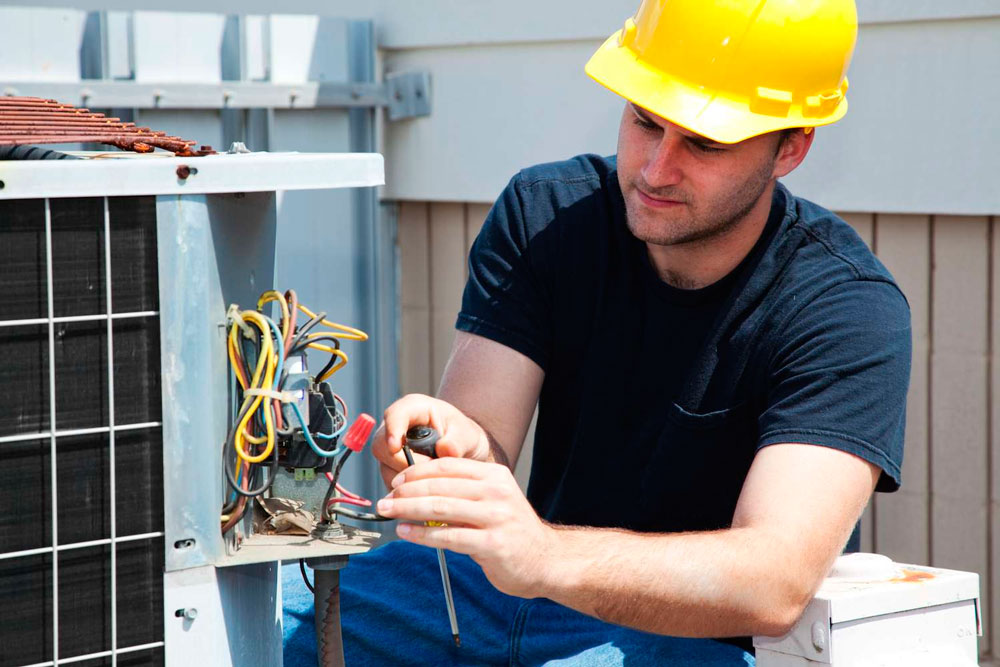The electrician licenses are necessary because you must comply with the provisions of the electrical code and the requirements that the license requires you as an electrician according to each state.
However, although some states do not have strict licensing requirements, they leave this requirement to local jurisdictions.
This is why some maintain reciprocity agreements for contractors.
The truth is that as a licensed electrician you will be able to repair and maintain electrical power systems and equipment in residential, commercial and industrial buildings.
For example replacing the old wiring as long as you comply with the building regulations.
Requirements for obtaining electrician licenses
So you can get the electrician licenses You must meet the requirements of an electrician career, because although you will not need much education after high school and your salary will be above the national average, it is a profession that will expose you to risks of electrical injuries and you will have to work both in small spaces and outdoors.
So first of all, you must have completed the educational level with a high school diploma or an equivalent and completed the learning that involves post-secondary training.
You will have to fulfill the fields that the bachelor’s degree implies in electrical safety and electrician training.
The learning will take between 4 to 5 years from which you will acquire skills in critical thinking, problem solving and customer service.
Classes to become a licensed electrician:
Most technical schools offer diploma or certificate programs with the goal of preparing the student for work as an apprentice electrician.
They generally satisfy the course requirements of an apprenticeship, and in many cases, the classes can prove completion of a bachelor’s program.
As a student you learn the skills necessary for the installation, repair and maintenance of electrical wiring.
Become an Apprentice Electrician:
To become an apprentice electrician you must complete an apprenticeship program that will allow you to learn the trade while earning a salary.
In this sense the International Brotherhood of Electrical Workers and the national association of electrical contractors jointly offer training programs through the joint national learning and training committee.
In addition, professional associations such as Associate Contractors and Independent Electrical Contractors and vocational schools also offer apprenticeship programs.
As an applicant you must be at least 18 years old and have a high school diploma or equivalent.
The apprenticeship will span 4 to 5 years combining education with on-the-job experience under the supervision of a licensed electrician.
You’ll get training to work as an indoor, outdoor, residential, and voice data electrician, and even courses include safety, first aid, codes and standards as well as electrical concepts and mechanical skills.

The license: The experience you accumulated during the apprenticeship will apply for you to obtain the license that is required for you to work as an electrical contractor.
However, you must provide a sample of your work experience and payment of a fee that will allow you to receive the license.
A qualifying score from an exam is also required to ensure your knowledge of local regulations and the national electrical code.
Licenses are generally classified by type of electrical work or by level of experience as an apprentice and master electrician.
This is why you must complete a minimum number of continuing education hours each year so that you can maintain your license and periodically pass another exam.
The Continuing Education Office is responsible and provider for the management of the courses.
Continuing education requirements: Continuing education requires 14 hours of council-approved continuing training every two years prior to the renewal period for certified and registered contractors.
7 hours are devoted to technical subjects, 1 hour of compensation, 7 hours of workplace safety, 1 hour of business practice, 1 hour of advanced course and 1 hour of Florida laws and rules.
In the case of multiple licensees, they must complete the continuing education requirements once each biennium.
Contractors engaged in alarm system contracting are required to take a 2-hour false alarm prevention course as part of continuing education.
Applying for Electrician Licenses in Florida
Certified Alarm System Contractor Exam IBefore applying for the license you must pass the two-part exam and to take it you must be at least 18 years old,
After passing the exam you must prove that you meet the experience requirements, because if you do not meet these requirements you will not obtain the license.
You must also pay the fee by electronic check or credit card if you apply online or with a check made out to the Department of Business and Professional Regulation if you send the application by mail.
For the Alarm System Contractor I Registered License Exam you will need to take the test and pass the local license exam and provide a copy of your local competence card.
You must pay the fee by electronic check or credit card if you apply online or by check payable to the business and professional regulation department if you send the application by mail.
Licensing categories for electricians
Therefore, to obtain electrician licenses, first of all you should look for an electrician school in Florida, because according to your intention you may need one of the different license categories:
- The one of contractor in electricity.
- Certified or Registered Alarm System Contractor I
- Certified or Registered Alarm System Contractor II
- The electrical specialty contractor license.
- The lighting maintenance.
- The one that allows you to sign.
- The one with limited energy
- The utility line either certified or registered.
As you can read, licenses are issued by registration or certification and therefore the choice of one of them will depend on what you intend to do.
Certified graduates: As a certified licensee you can work anywhere in Florida, but it is not as easy to obtain it as the registered option because you will have to pass state exams to be licensed.
Registry: As an applicant you will have taken and passed a local proficiency exam and will be able to practice the profession within that locality.
Certification: As an applicant you will have taken and passed the state licensing exam and will be able to practice the profession throughout the state of Florida.
Registered graduates: As a registered licensee you will only be able to work within the county in which you are registered and nowhere else, but the process is much easier. You will only need to register a specific county or municipal competence certificate to get this type of license.
Note that the license is provided by the business and professional regulation department.
But if you are interested in obtaining the license to start a business, they are granted by the Electrical Contractor Licensing Board, as it grants them to contractors to perform electrical and alarm work in accordance with Florida Statutes.
However, a corporation, partnership, limited liability company, or any other business entity that is not a sole proprietorship for business purposes must be approved to qualify as the business entity.
The name of this approved entity will appear on the contractor’s individual license.
In the event that you are operating as an individual without a commercial name, the word individual will appear on the license.
Every electrical or alarm business is qualified by a licensed individual contractor for the purpose of participating in construction activities in Florida.
How much does it cost to get an electrician license?
Rates and fees: Rates include a $ 5 fee and a $ 4 fee that is transferred to the Florida Building Commission to fund projects related to the building construction industry or continuing education programs offered to individuals involved in the building construction industry. construction.
The biennial renewal fee for the certified electrical contractor license is $ 300 while the registered electrical contractor license is $ 125.
Therefore, if you are interested in working as an electrician, you already know that you need to have a license, but for this you must enroll in a school to take the corresponding exam, since otherwise you will be denied the license.
Texas Electrician Apprentice License
Texas Electrician License: Experienced electricians can quickly and easily obtain a temporary apprentice license online. Once an apprentice license is obtained, you need to coordinate with a Texas licensed electrical contractor to immediately begin performing electrical work in Texas. Apply for a learner’s license online.
Texas has reciprocal licensing agreements with several states, including master electrician reciprocity with North Carolina and Louisiana, and official electrician reciprocity with Arkansas, Idaho, Montana, Nebraska, New Mexico, Oklahoma, South Dakota, and Wyoming. A reciprocal licensed officer needs to coordinate with a Texas licensed electrical contractor. More information on how to apply by reciprocity.
TDLR is ready to quickly follow up on reciprocal license applications so electricians who wish to assist with Harvey’s recovery efforts can quickly coordinate with Texas electrical contractors and begin performing electrical work in Texas.
Texas electrician apprentice license requirements, applicant and experience requirements. (Texas Electrician License)
A. The applicant for a license must submit the required fees with a completed application and appropriate attachments:
- Applicants for Master Electricians, Master Sign Electricians, Official Electricians, Placard Electricians, Residential Drivers, Line Officers and Maintenance Electrician Licenses must submit documentation proving the required amount of on-the-job training.
- Applicants for contractor licenses must submit proof of general liability insurance and workers ‘compensation insurance or a certificate of authority to self insure, or a statement that the applicant has chosen not to obtain workers’ compensation insurance in accordance with subchapter a, chapter 406, labor code, with initial and renewal applications.
- Applicants for contractor licenses must present proof of ownership of the business entity and provide documentation from the sponsoring Master Licensee in a manner prescribed by the Department.
- The applicant for a line officer’s license must present documentation proving the required amount of training in an apprenticeship program or the required amount of experience as a line officer.
B. An applicant must meet all requirements within one year from the date the application is submitted.
C. For the purposes of this chapter, 2,000 hours of on-the-job training will be the maximum that can be obtained within one year.
D. Each applicant must meet the applicable eligibility requirements established in the Texas Occupations Code, § § 1305.153-1305.1618.
